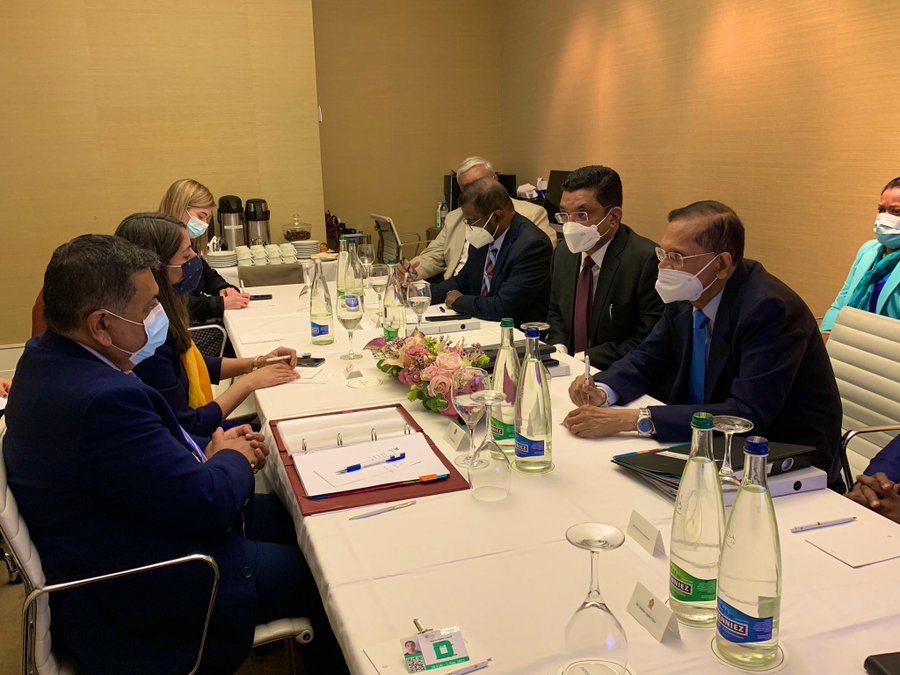
As the 49th session of the UN Human Rights Council begins, the British Minister for South Asia, Lord Tariq Ahmad, has met with Sri Lanka’s Foreign Minister G L Peiris and pressed him on progress over “truth, justice and reconciliation mechanisms”.
I met with #SriLanka Foreign Minister G L Peiris in Geneva in margins of @UN_HRC. I pressed him on progress in Sri Lanka on truth, justice and reconciliation mechanisms. Very much hope they enact them. pic.twitter.com/p6FGlzybYD
— Lord (Tariq)Ahmad of Wimbledon (@tariqahmadbt) February 28, 2022
His meeting follows a damning report by the UN High Commissioner for Human Rights, which raised alarm over the “lack of accountability for past human rights violations and recognition of victims’ rights in Sri Lanka, particularly those stemming from the conflict that ended in 2009”.
Her report further detailed “a further drift towards militarisation and an emphasis of Sinhala nationalism and Buddhism in State institutions” as well as “increasing the marginalisation and uncertainty of minority communities, and undermining reconciliation”.
Peiris has repeatedly attacked the latest UN resolution which mandates for the collection and preservation of evidence of war crimes that may be used in a future criminal tribunal. Peiris has also claimed that “this is an ongoing process, and the country requires sufficient space for the local institutions to deliver on their mandates. The work done by these institutions cannot be replaced or taken over by external bodies”.
He has further attacked human rights organisations for their reporting on Sri Lanka’s dire human rights record, claiming that reports from Human Rights Watch “risks igniting and aggravating domestic discord”.
Despite the call from Tamil survivor communities and human rights organisations for an international accountability process, Minister Ahmad’s statement concludes by calling on Sri Lanka to implement a mechanism of “truth, justice and accountability”
To this day, Britain has not imposed any sanctions on Sri Lankan military and civilian officials implicated in war crimes and crimes against humanity.
